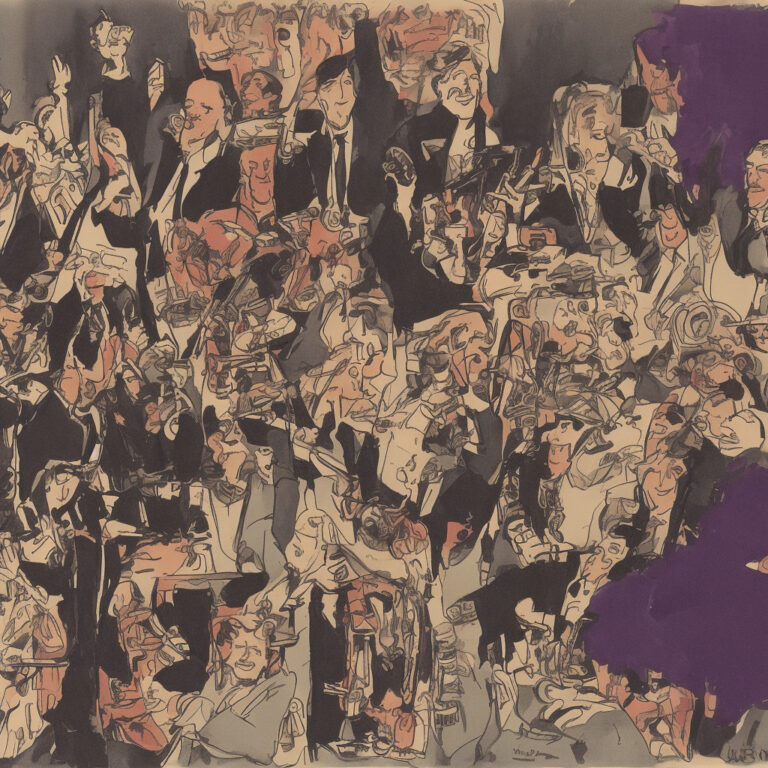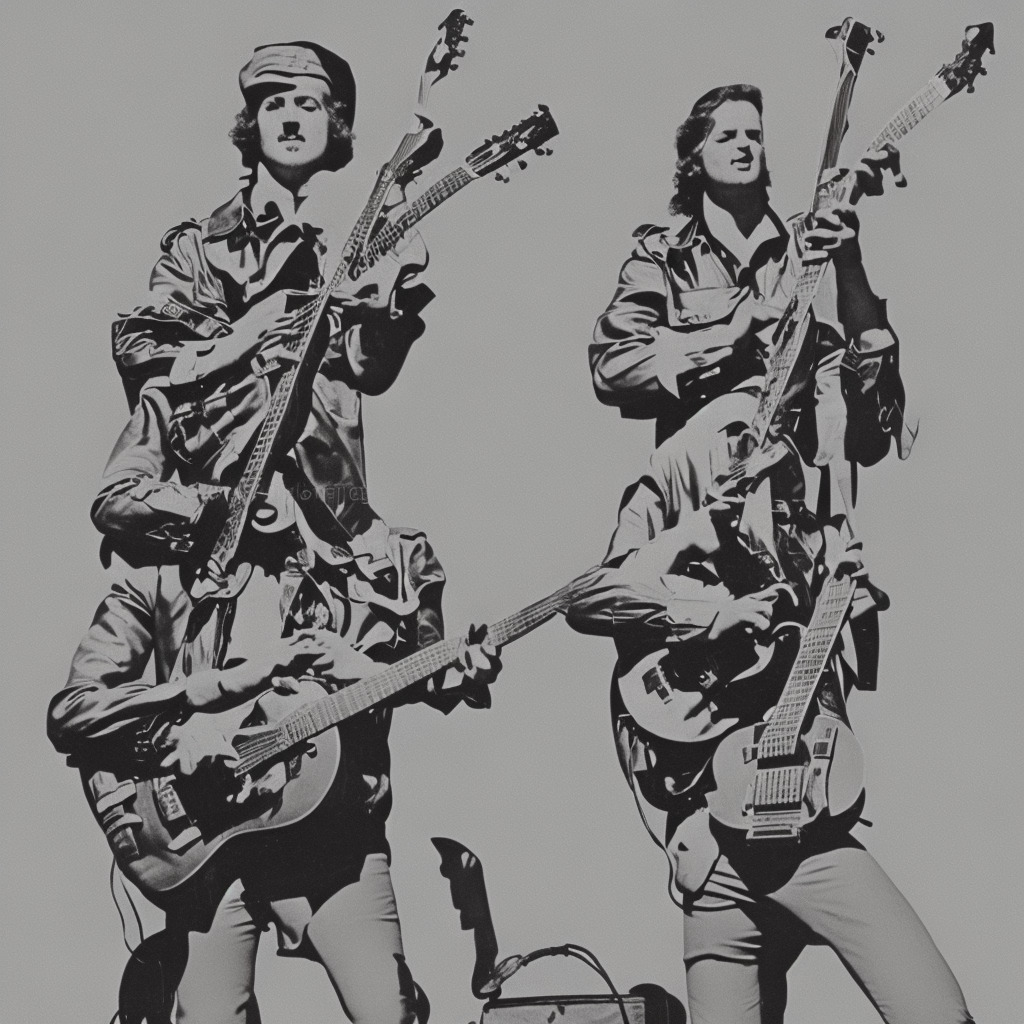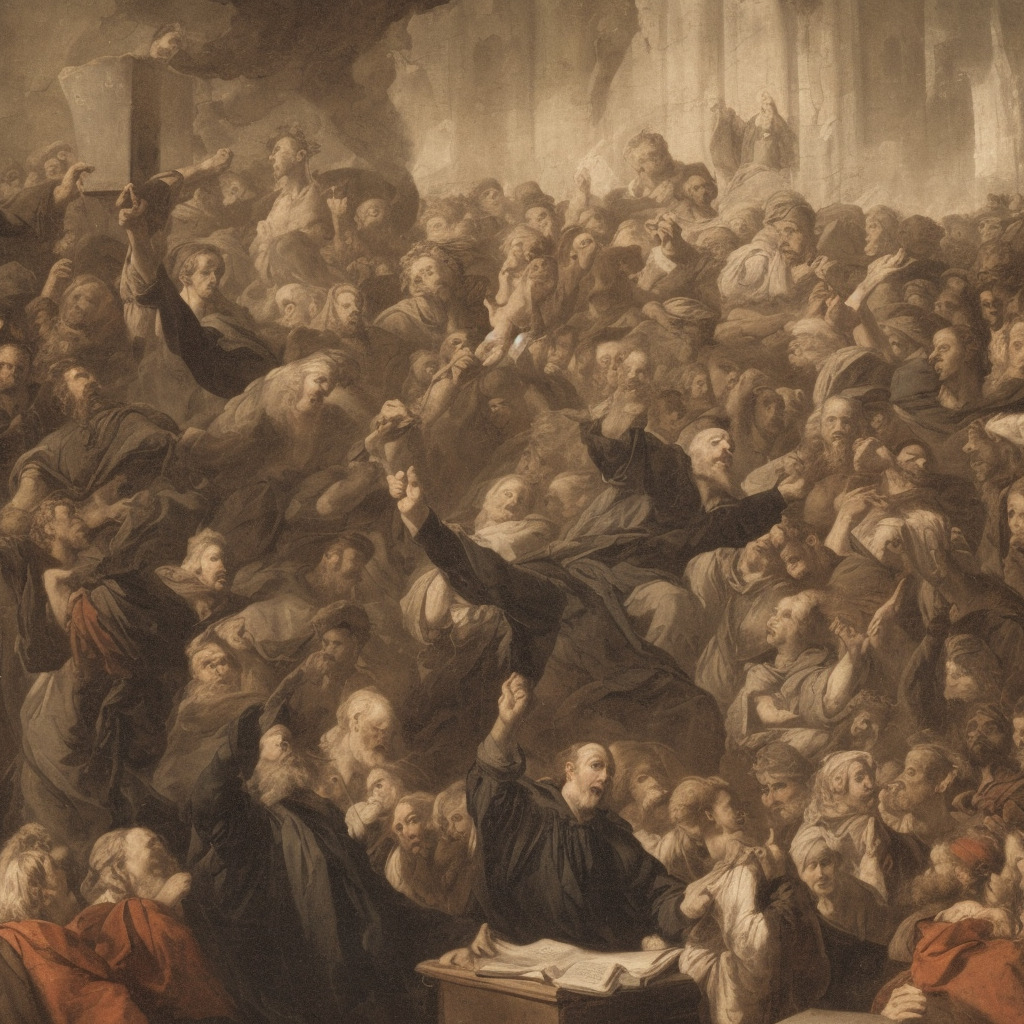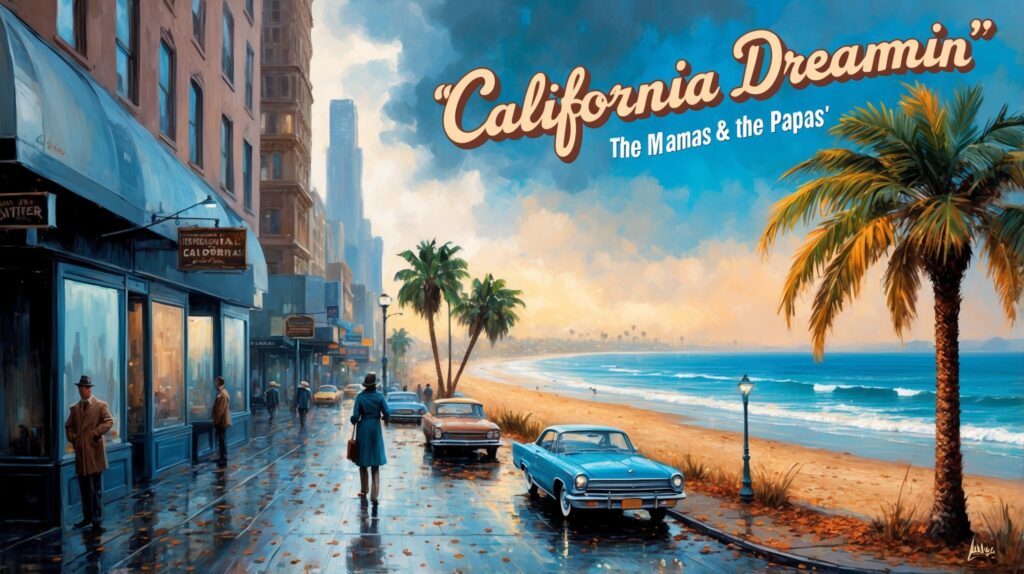🎸 Blast from the past! Did you know Deep Purple’s “Soldier of Fortune” was never released as a single, but still became a fan fave? 🤯 David Coverdale’s soulful voice + Ritchie Blackmore’s iconic guitar = 💜 this classic gem! #DeepPurple #SoldierOfFortune #ClassicRockTrivia Read about it: tinyurl.com/4nsxdkhs
Unraveling the Mystique of Deep Purple’s Enigmatic Tune
Dive into the captivating allure of Deep Purple’s “Soldier of Fortune,” an introspective gem that showcases their versatility amidst a tumultuous era in the band’s storied history.

Deep Purple, a British rock band formed in 1968, has long been considered one of the pioneers of heavy metal and modern hard rock. Boasting a dynamic lineup that includes instrumental virtuosos such as Ritchie Blackmore (guitar), Jon Lord (keyboards), Ian Paice (drums), and Ian Gillan (vocals), the group has left their indelible mark on the rock music landscape with their innovative sound and captivating live performances. With a career spanning over five decades, the band has released 21 studio albums to date as well as numerous live recordings and compilations. Their accolades include inductions into the Rock and Roll Hall of Fame in 2016 and the Classic Rock Roll of Honour Awards in 2011, among others.
One song that proves why Deep Purple garnered such a devoted fanbase is “Soldier of Fortune,” a track off their 1974 album “Stormbringer.” Featuring the talents of David Coverdale (vocals) and Glenn Hughes (bass, vocals), who had joined the band in 1973, “Soldier of Fortune” captivated audiences with its enchanting melodies and heartfelt lyrics. A notable departure from the band’s signature hard rock sound, the song showcases a more introspective and emotional side that still continues to resonate with listeners today.
However, despite the widespread acclaim for the song, it is worth noting that “Stormbringer” marked the beginning of a tumultuous period for Deep Purple. Tensions were brewing between guitarist and co-founder Ritchie Blackmore and the rest of the band, mainly due to creative differences. Blackmore was unhappy with the more funk and soul-influenced direction that the music was taking, which led to his departure in 1975 and the formation of his own band, Rainbow.
While “Soldier of Fortune” stands as a testament to the group’s ability to experiment with various musical styles and deliver a hauntingly beautiful ballad, the fact remains that it was during this era that Deep Purple began to lose some of their cohesion and unified vision. This would lead to several lineup changes and a temporary breakup in 1976 before the band’s eventual reformation in 1984.
In conclusion, Deep Purple’s “Soldier of Fortune” remains an enduring classic that showcases the band’s versatility and raw emotional depth. Despite the internal struggles that the band faced during the time of its creation, the song continues to inspire and appeal to new generations of rock enthusiasts. Through all their trials and tribulations, Deep Purple’s legacy as one of the founding forces of hard rock and heavy metal remains steadfast and undeniably deserved.
Charting the Journey of a Timeless Classic
Exploring the enigmatic journey of Deep Purple’s “Soldier of Fortune,” an uncharted gem turned timeless classic, transcending initial chart obscurity as its legacy endures.

Let’s take a closer look at the chart success, or lack thereof, of Deep Purple’s “Soldier of Fortune.” Released on April 7, 1974, the song was featured on their seventh studio album, “Stormbringer.” Despite being a fan favorite and one of the band’s most well-known tracks, it didn’t have a significant impact on the charts immediately following its release.
While the “Stormbringer” album itself had a relatively successful chart run, peaking at No. 6 on the UK Albums Chart and No. 20 on the US Billboard 200, “Soldier of Fortune” surprisingly never charted as a single. As a testament to the song’s enduring popularity, however, it has been covered by numerous artists across various genres, including Blackmore’s Night, Opeth, and Whitesnake.
It’s worth noting that “Soldier of Fortune” was never released as a single during its initial run, which could be a contributing factor to its absence from the charts. The song’s popularity has grown primarily through word of mouth, live performances, and fans discovering it as an album track.
Interestingly, the song gained some traction in several countries much later, following its inclusion in compilation albums and re-releases. In 2015, more than four decades after its initial release, a remastered version of “Soldier of Fortune” finally charted in Japan, reaching No. 54 on the Japan Hot 100.
Ultimately, while “Soldier of Fortune” may not boast an impressive chart history, its continued resonance with fans and musicians alike speaks to its lasting impact and timeless appeal. Sometimes, chart positions don’t necessarily reflect the true success of a song, and “Soldier of Fortune” is a prime example of a track that has transcended its initial chart performance to stand the test of time.
Delving into the Soulful Lyrics of a Timeless Classic
I have often told you stories
About the way
I lived the life of a drifter
Waiting for the day
When I’d take your hand
And sing you songs
Then maybe you would say
Come lay with me and love me
And I would surely stay
But I feel I’m growing older
And the songs that I have sung
Echo in the distance
Like the sound
Of a windmill going round
Guess I’ll always be
A soldier of fortune
Deep Purple’s “Soldier Of Fortune” is a slow, heartfelt ballad that captures the essence of a wandering spirit’s longing for love and connection. The lyrics are wistful and melancholic, showcasing the vulnerability of the narrator as he laments his life as a drifter.
The song was released in 1974 on the album “Stormbringer” during a time when the world was undergoing significant changes. The Vietnam War was drawing to a close, the Watergate scandal was dominating headlines, and the United States was experiencing economic stagnation. This tumultuous atmosphere led to a generation of young people who felt disillusioned and uncertain about their future.
The Meaning Behind the Melancholic Words
In the midst of this uncertainty, the lyrics of “Soldier Of Fortune” struck a chord with listeners. The protagonist’s life as a drifter can be seen as a metaphor for the transient nature of human existence and the search for meaning in a chaotic world. The narrator’s desire to find lasting love and happiness amidst this drifting could be interpreted as a reflection of the collective longing for stability and peace during this turbulent era.
Furthermore, the song’s focus on the passage of time and the inevitability of change resonates with the spirit of the era, as the world was undergoing significant shifts in political, social, and cultural landscapes. Overall, the introspective and heartfelt lyrics of “Soldier Of Fortune” stand as a testament to the universality of human emotions and the power of music to provide solace and connection during challenging times.
The Visual Journey: “Soldier of Fortune” Unveiled
Diving into the visual legacy of Deep Purple’s timeless classic “Soldier of Fortune,” where fan tributes and powerful live renditions keep the song alive and resonating with generations of music lovers.
Despite the immense popularity of Deep Purple’s “Soldier of Fortune,” it may come as a surprise to some fans that there is no official music video for this classic track. However, the song has left its indelible mark on the music world, inspiring a host of fan tributes, covers, and live performances that have been immortalized on platforms like YouTube.
One such video that has garnered considerable attention is a live performance of “Soldier of Fortune” by the band’s former lead vocalist, David Coverdale, and his band Whitesnake. This rendition, captured during their 2015 Purple Tour, showcases Coverdale’s powerful vocals and emotional delivery, breathing new life into the song and captivating the audience. The video has since racked up millions of views, demonstrating that the song continues to resonate with fans nearly half a century after its original release.
Fan-made videos have also played a significant role in keeping the spirit of “Soldier of Fortune” alive. One standout tribute is a poignant and artistically-driven montage of black and white war images set to the song’s haunting melody. This visual narrative conveys the theme of loss and longing inherent in the lyrics, allowing the viewer to connect with the song on a deeper level.
Additionally, the song’s timeless appeal can be witnessed in the array of covers by musicians from around the globe. From acoustic guitar renditions to full band performances, these videos showcase the versatility and emotional depth of “Soldier of Fortune.” Furthermore, the wide range of musicians who take on the song – from amateur performers to established artists like Opeth and Black Majesty – is a testament to the song’s enduring influence.
In the absence of an official music video, the creative efforts of fans and fellow musicians have helped to maintain the legacy of Deep Purple’s “Soldier of Fortune.” These tributes and performances not only pay homage to the original but also contribute their own unique interpretations, ensuring that this classic track continues to inspire and captivate for generations to come.
The Mastermind Behind “Soldier Of Fortune”
The genius composer behind the enchanting tune of “Soldier of Fortune” is none other than Deep Purple’s guitarist, Ritchie Blackmore. Blackmore, who co-wrote the song with then-lead vocalist David Coverdale, is also known for his exceptional work on other all-time favorites like “Smoke on the Water,” “Child in Time,” and “Highway Star.” As a founding member of Deep Purple, Blackmore played a pivotal role in shaping the band’s sound, infusing his classical influences with hard rock to create masterpieces that have stood the test of time. His contributions to the world of rock music are indisputable, and “Soldier of Fortune” serves as a testament to his remarkable skills as a composer and musician.
Uncovering the Accolades and Impact
“Soldier of Fortune”: An unsung hero in Deep Purple’s legacy, echoing love and loss through generations of rock enthusiasts.

Released in 1974 as part of Deep Purple’s “Stormbringer” album, “Soldier of Fortune” may not have received any specific awards on its own, but it undoubtedly contributed to the success and recognition the album enjoyed. Stormbringer peaked at No. 6 on the UK Albums Chart and No. 20 on the US Billboard Top LPs chart, showcasing the popularity of the album containing the classic ballad.
While “Soldier of Fortune” hasn’t made prominent appearances in movies or TV shows, given its timeless and deeply emotional nature, it has been used as background music in various fan-made montages and compilations online. Its evocative lyrics and melody have resonated with countless fans of the band and have secured its place as an iconic song in the Deep Purple catalog.
Over the years, the song has garnered a considerable following and has been covered by numerous artists from various genres. Some of the most notable renditions of “Soldier of Fortune” include a heartfelt cover by Whitesnake frontman David Coverdale, who was a member of Deep Purple from 1973 to 1976. Coverdale’s rendition was featured on Whitesnake’s 2015 album “The Purple Album,” a tribute to his time with the legendary band. Another powerful cover comes from the Finnish symphonic metal band Nightwish, who revealed their version as a bonus track on their “Élan” single in 2015.
Moreover, “Soldier of Fortune” has been embraced by guitar enthusiasts and aspiring musicians for its relatively straightforward chord progression, making it a popular choice for open mic nights and local performances. Its enduring appeal can be attributed to its introspective lyrics and the universal themes of love and loss that continue to resonate with listeners.
Although “Soldier of Fortune” may not have accumulated significant awards or accolades specifically, its impact on fans, musicians, and the larger music community cannot be understated. The song’s powerful message, haunting melody, and timeless appeal ensure that it will remain a beloved classic in the annals of rock history.
Diving into the Musical Structure
When analyzing the musical structure of “Soldier of Fortune,” it’s essential to start by discussing the key and chord progressions. The song is predominantly written in the key of G minor, which gives it a melancholic and emotional tone. The chord progression throughout the track follows a simple yet effective pattern, alternating between Gm, Bb, C, and F chords. This progression allows for a smooth and seamless transition between chords, providing a solid foundation for the haunting melody.
The tempo of “Soldier of Fortune” is set at a moderately slow pace, around 70 beats per minute (BPM). This tempo choice adds to the somber and reflective mood of the track, giving the listener space to fully absorb and appreciate the intricate guitar work and emotive vocals. The slower tempo also allows for a more expressive and dynamic vocal performance, as the singer has the flexibility to hold notes and emphasize certain phrases.
One of the standout elements of “Soldier of Fortune” is the use of arpeggiated guitar chords, which are played by picking the individual notes of a chord in a sequential pattern. This technique creates a rich and textured sound, adding depth to the overall composition. The arpeggiated chords are played throughout the verses and choruses, with a subtle shift in the picking pattern during the chorus to create variation and maintain interest.
The song’s structure follows the classic verse-chorus-verse-chorus-bridge-chorus format, which is a tried-and-true framework for many rock ballads. The bridge section features a guitar solo, which is played over the same chord progression as the verses and chorus. This solo showcases the guitarist’s skill and adds an extra layer of emotion to the song, as the melodic lines intertwine with the vocal melody.
Another noteworthy aspect of “Soldier of Fortune” is the dynamic range throughout the track. The verses are relatively soft and subdued, with the lead singer’s voice sitting comfortably within the mix. However, as the song progresses, the intensity gradually builds, culminating in a powerful and emotive chorus. The contrast between the quieter verses and the soaring choruses creates an engaging listening experience, drawing the audience in and holding their attention throughout the entirety of the track.
In conclusion, “Soldier of Fortune” is a masterful blend of musical elements that come together to create a memorable and moving rock ballad. The choice of key, chord progression, and tempo all contribute to the somber and introspective atmosphere, while the dynamic range and arpeggiated guitar chords add depth and dimension. The end result is a song that resonates with listeners and showcases the incredible talent of Deep Purple.







